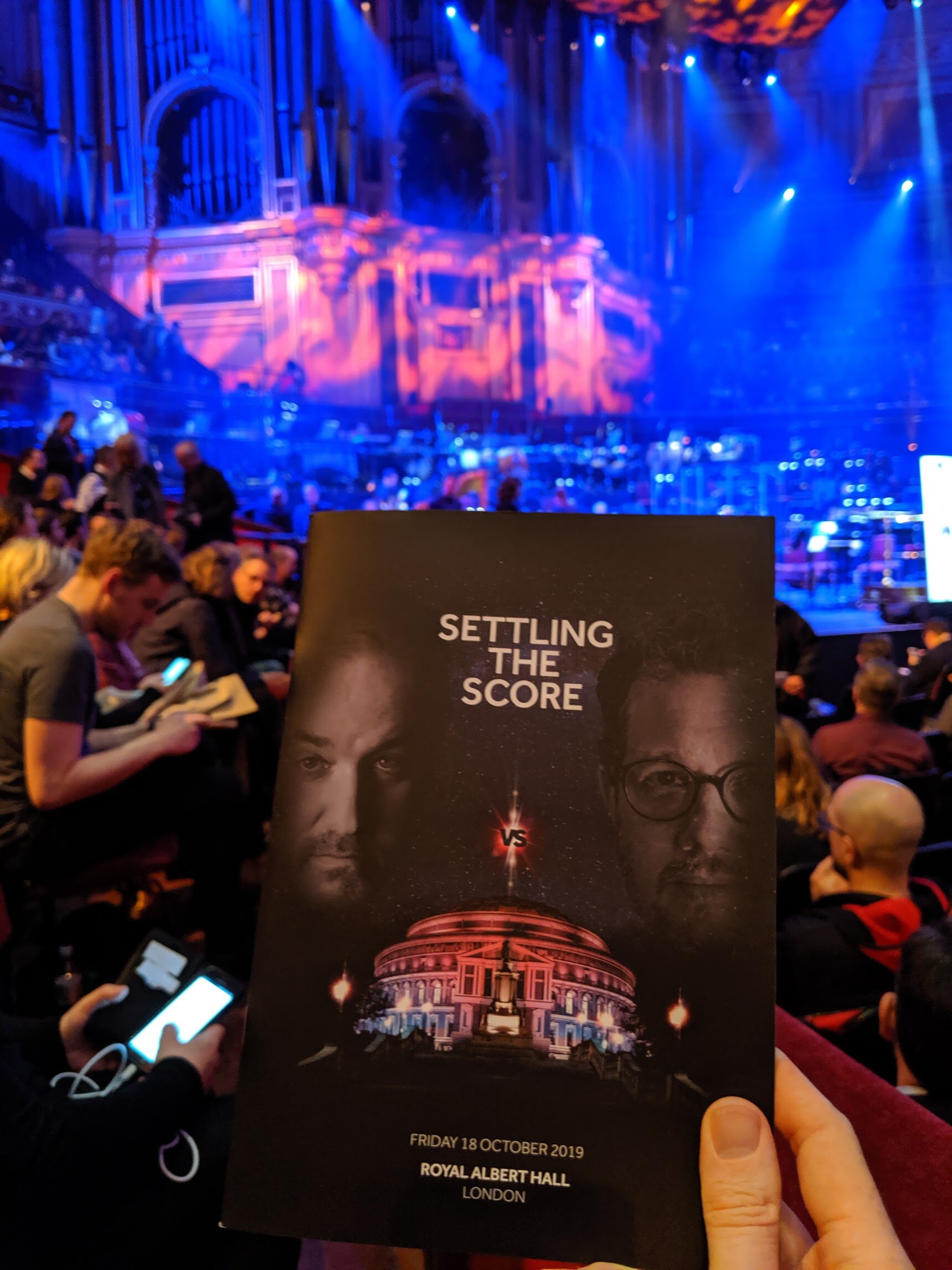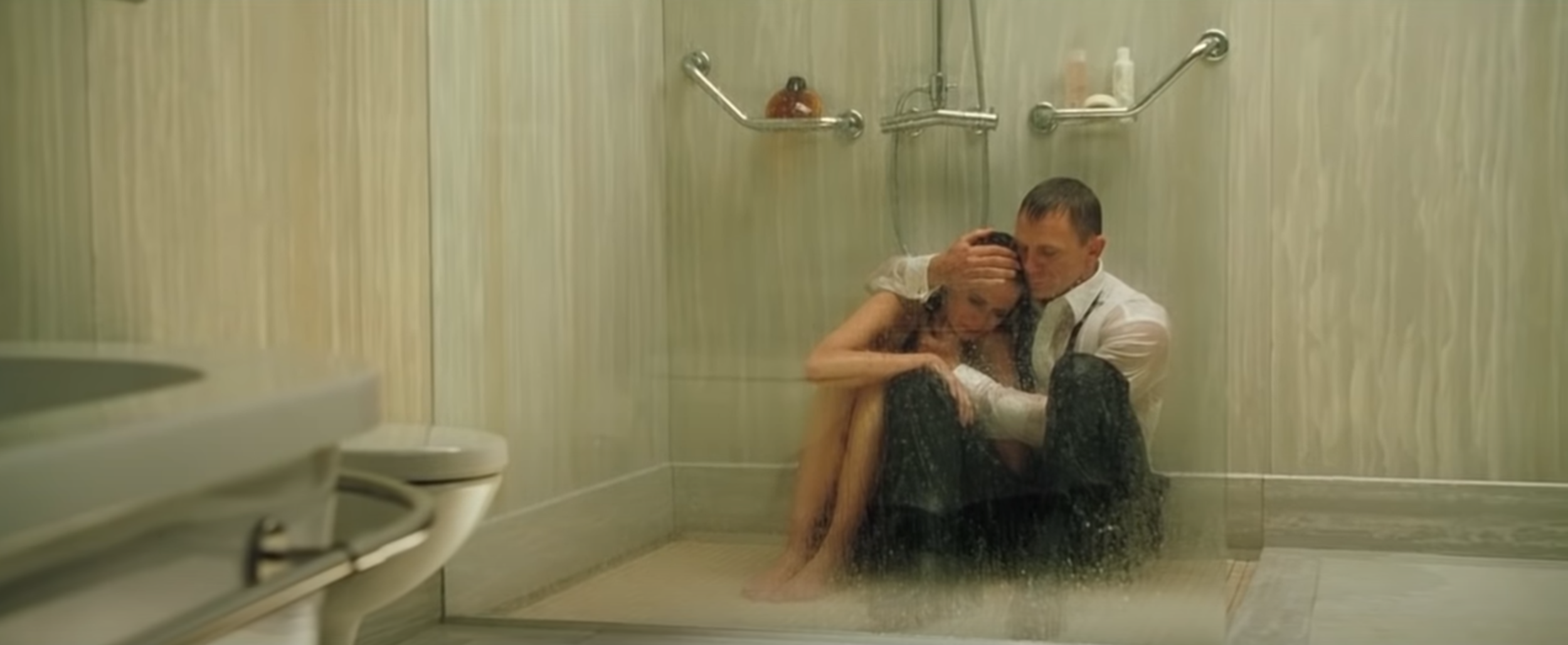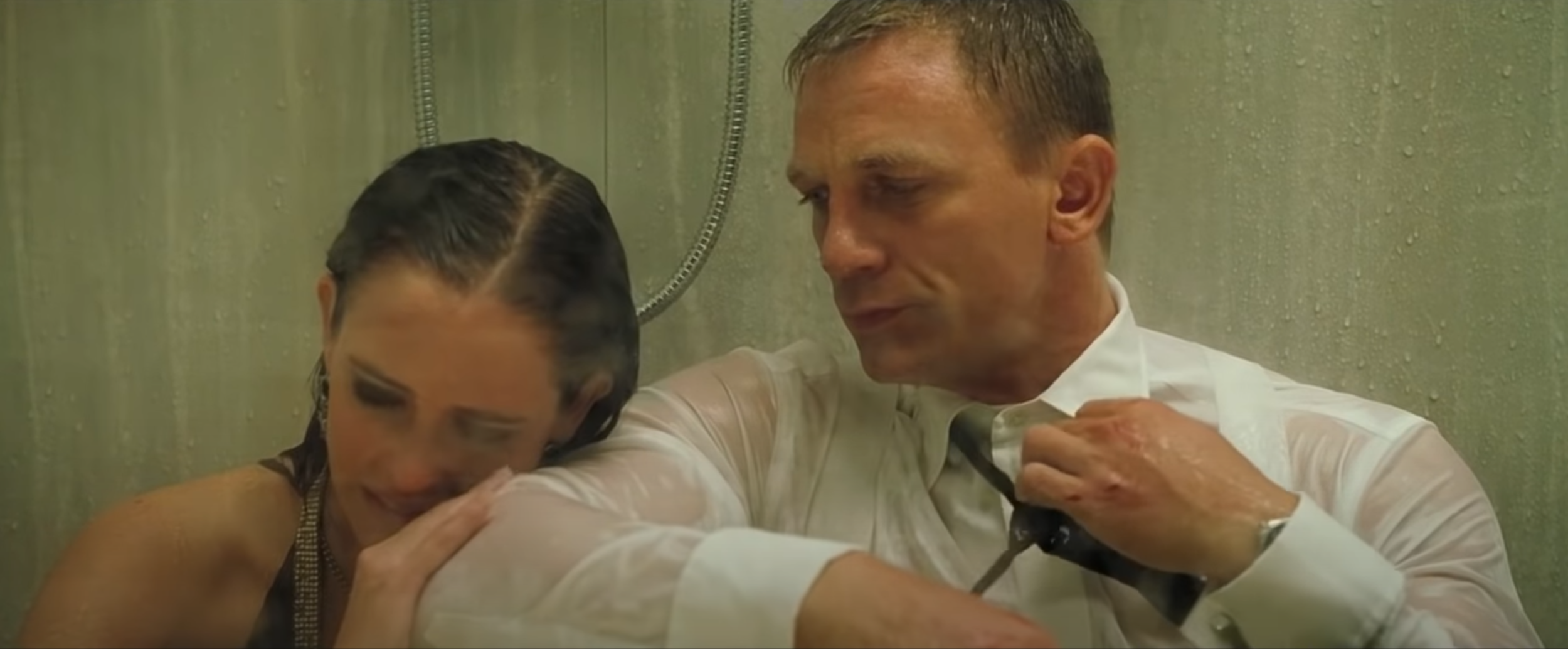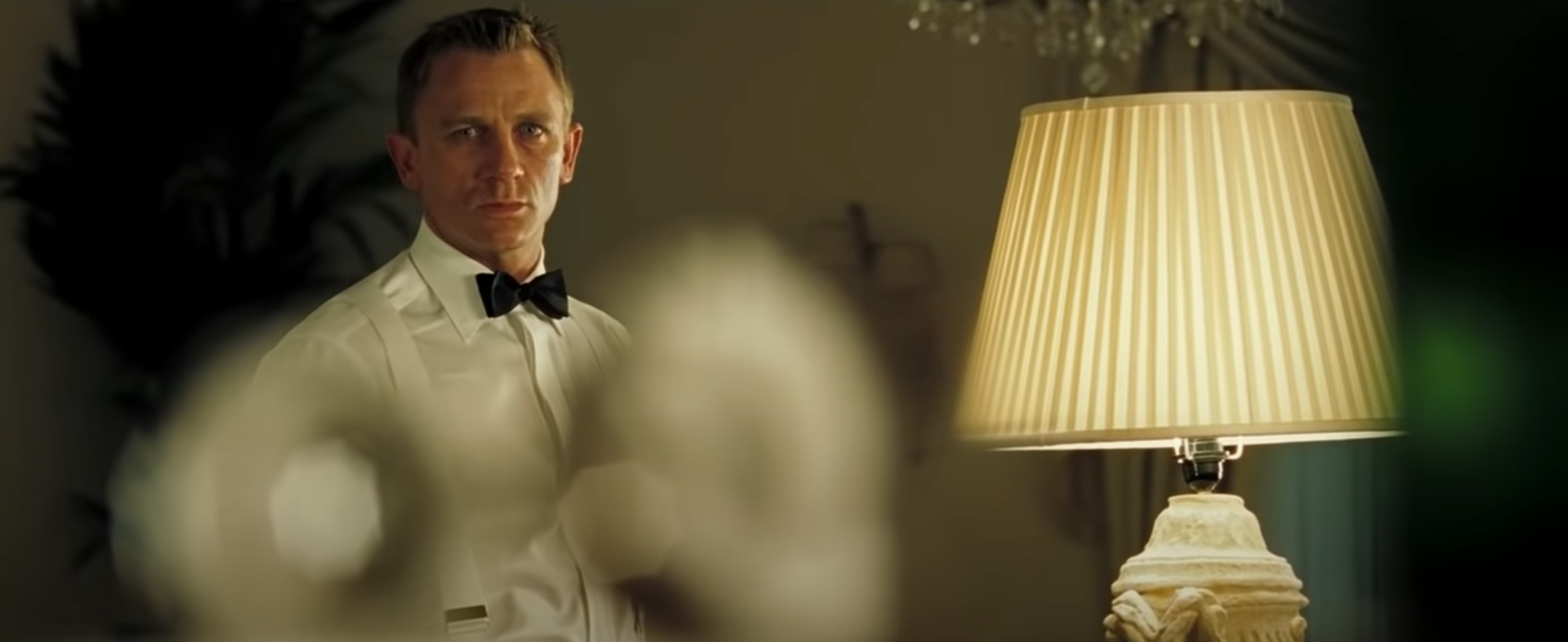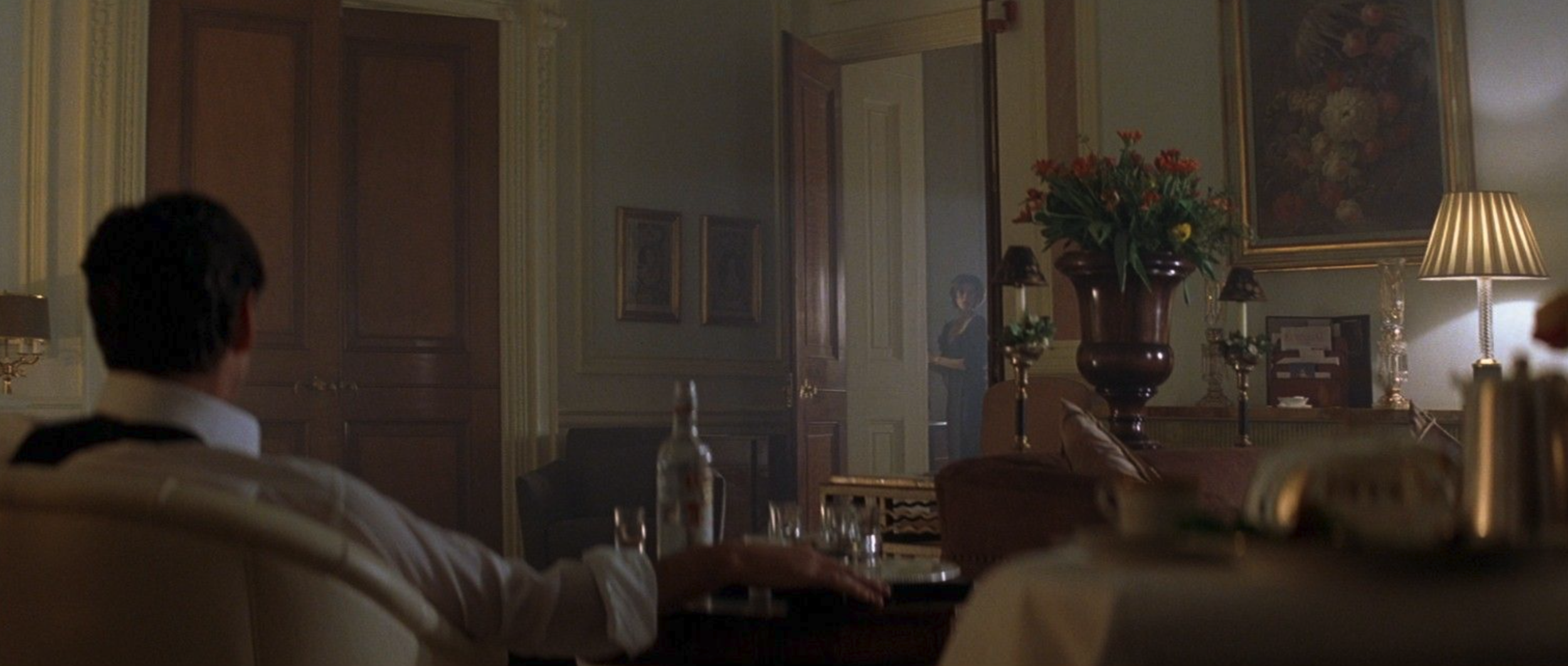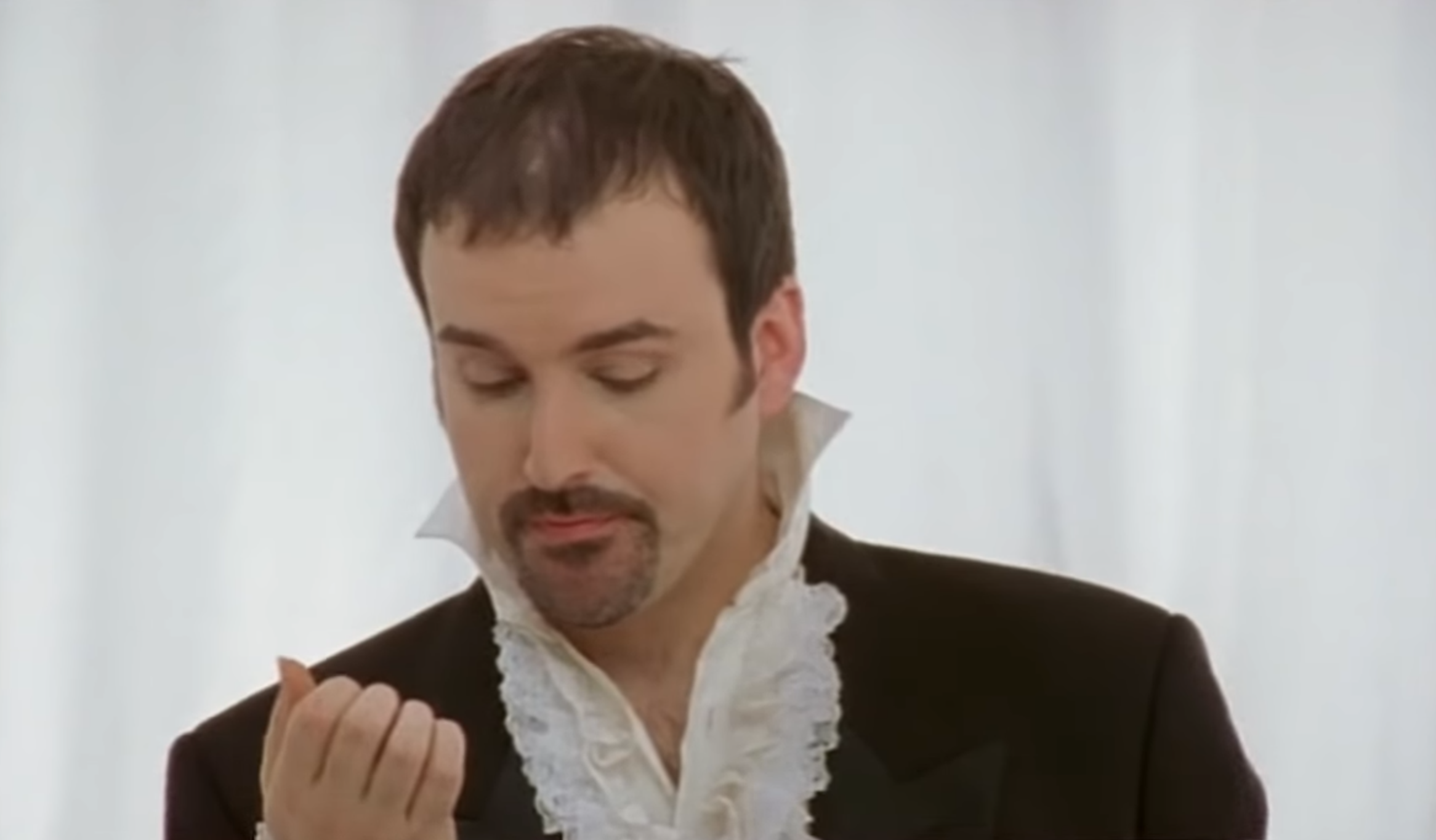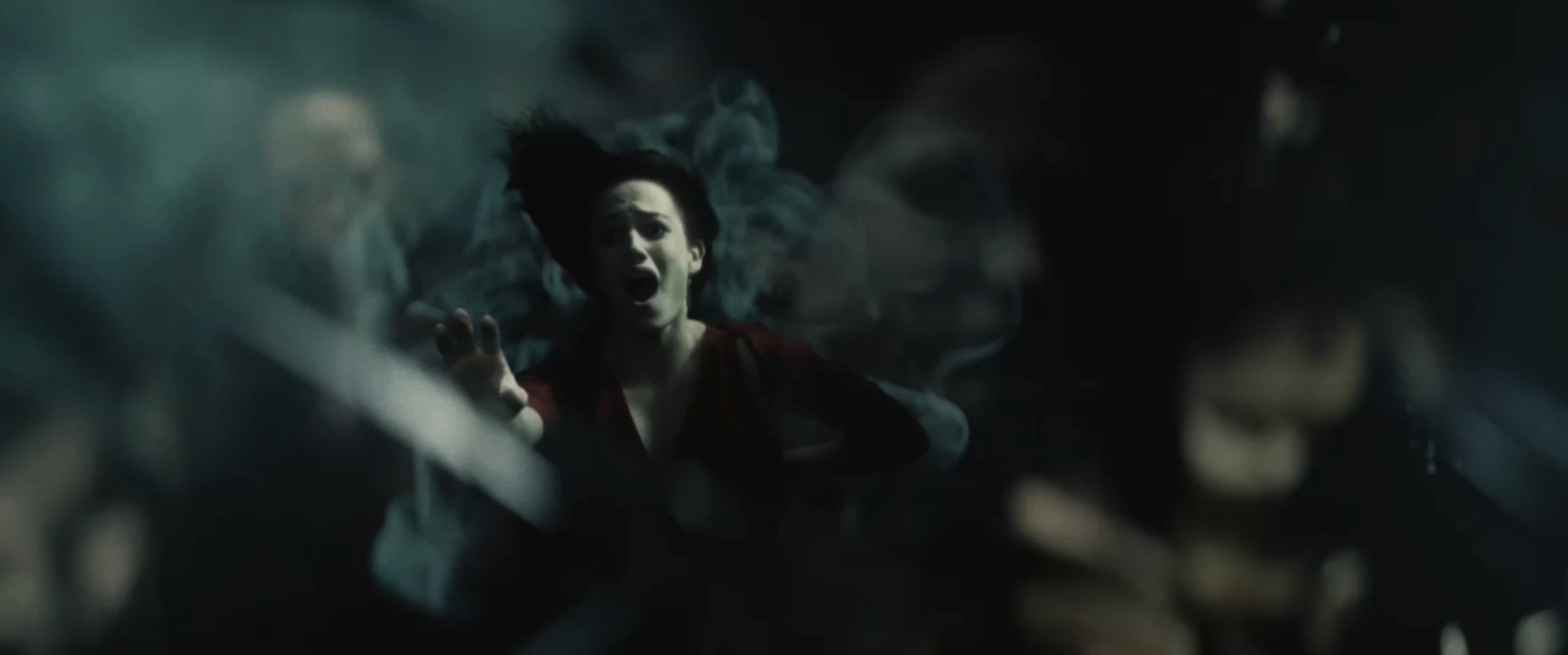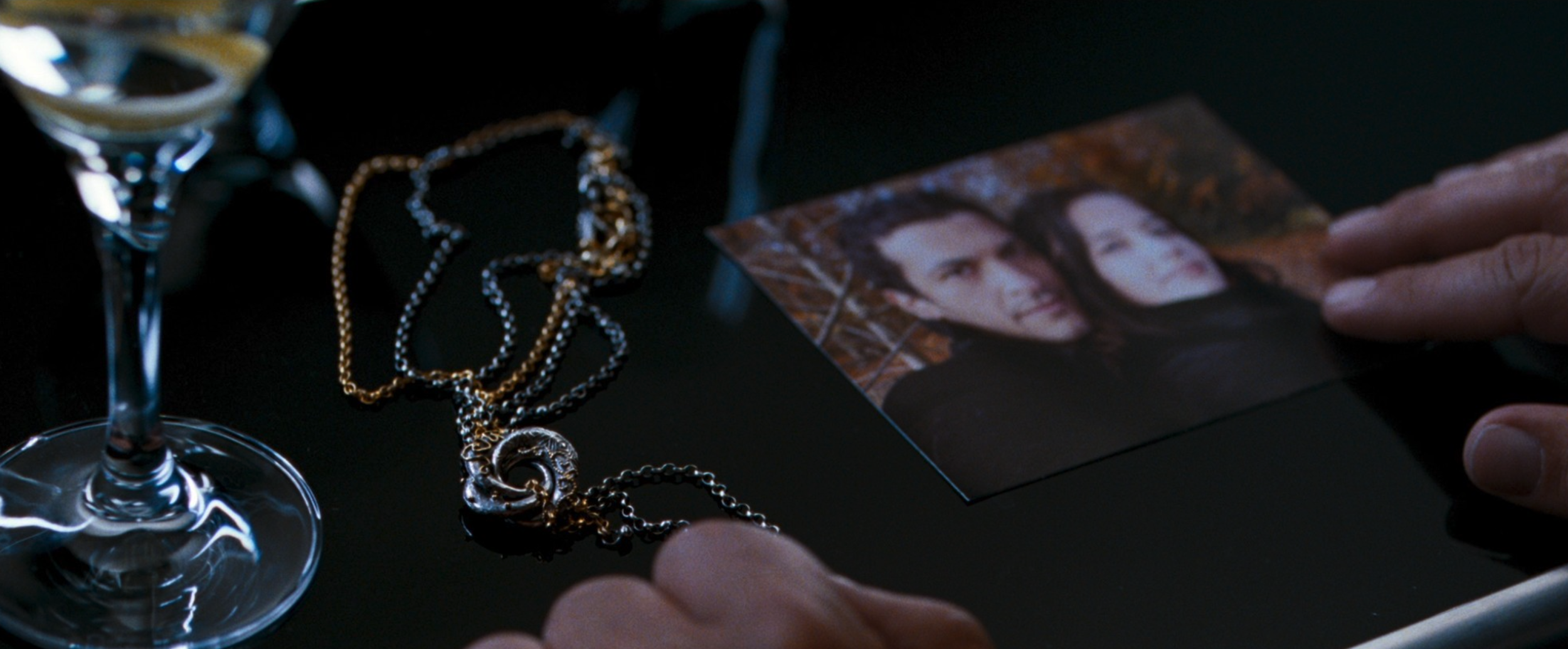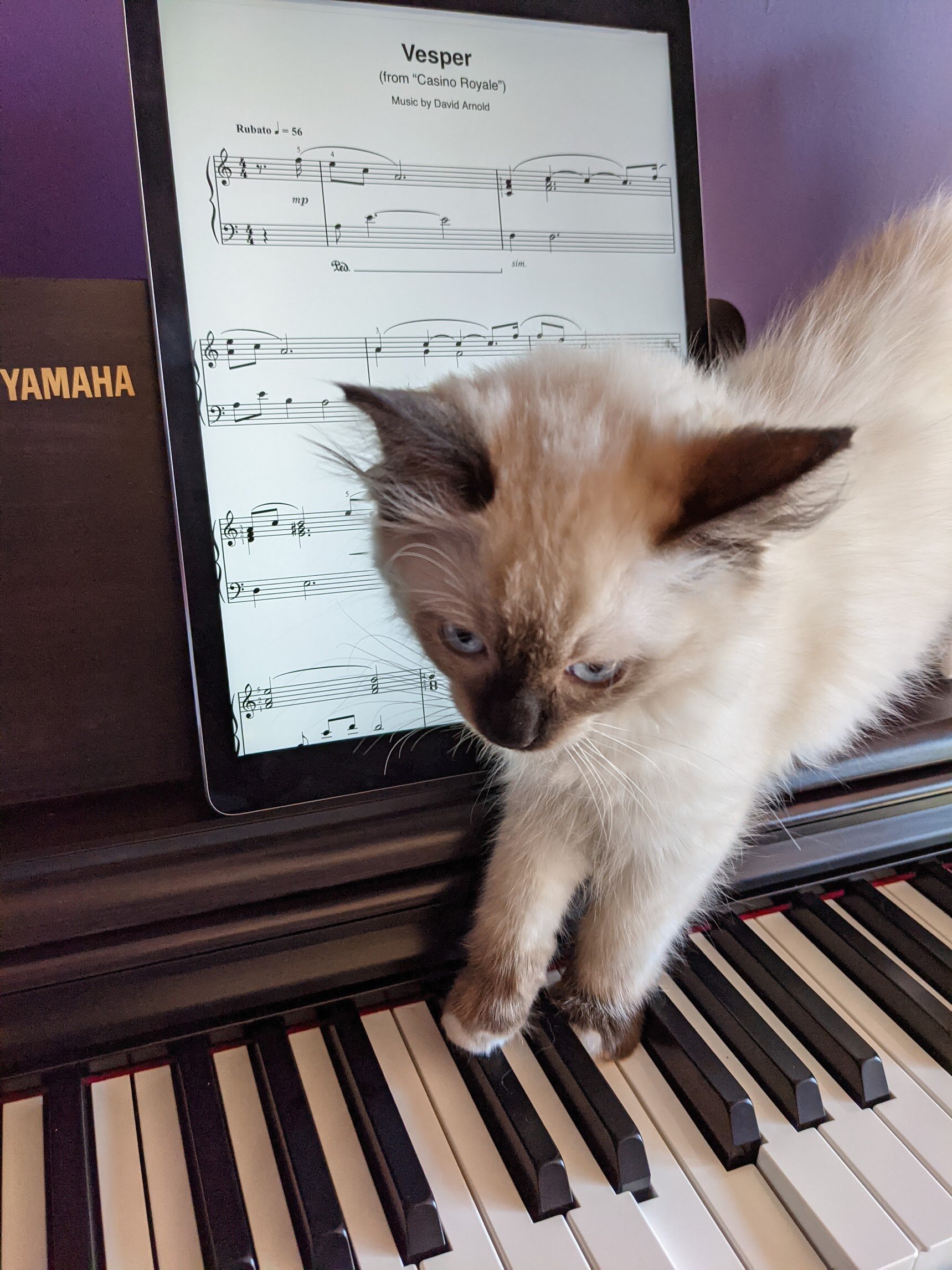The enduring appeal of Arnold's aurally androgynous Bond scores
No one integrates the masculine and feminine qualities of James Bond into the music as well as David Arnold. Is that why we keep wanting him back?
Asked about whether he minded people always asking him about his time as Bond, Roger Moore famously contrasted his feelings with that of his predecessor: “Sean—damn good actor, but he felt that he was only being remembered for Bond. I personally don’t give a damn.”
It surely rankles David Arnold, even slightly, that he gets asked to talk about Bond more than anything else. But if it does, he never lets it show. Despite his five Bond scores and his Shaken and Stirred project comprising a relatively small proportion of his oeuvre, David Arnold is always happy to make time for Bond fans, even the annoying ones like me, asking him really nerdy questions about particular cues over twitter (sorry David!).
In a recent webinar interview conducted as part of the National Film and Television School’s Backstories series, Arnold talked about his work, past, present and future. In the spirit of trying to talk about something other than Bond, I asked him about his latest project, an epic concert at the Royal Albert Hall to mark the iconic venue’s 150th anniversary. Inexplicably, no broadcaster was interested in it, which is a travesty. At work on the day of the performance and unable to get to London in time, I was gutted to have missed it. Fortunately, Arnold revealed that there were audio and visual recordings made, so they will hopefully see the light of day at some point. Back in October 2019, I just about made it to the Royal Albert Hall on a Friday night after work - travelling over two hours by taxi/train/tube - for Settling The Score, a special one off concert featuring Arnold and his friend Michael Giacchino (another favourite composer of mine). If the recent show was anything like that one, we’ll be in for an absolute treat.
Inevitably, during the NFTS webinar, the conversation turned to Bond. Among the many insights Arnold shared with us was how the ‘shower scene’ of Casino Royale changed over time. I believe it also reveals one of the reasons why so many of us believe Arnold is the best possible fit for Bond.
The importance of this scene cannot be overestimated. This is where Bond falls in love with Vesper, and vice versa. Arnold has said on numerous occasions that he writes music based around the characters, especially when it comes to Bond. Arnold’s music is far more psychologically nuanced than any of his predecessors’.
And yet, he says he got this scene wrong on the first pass.
Arnold’s initial approach was to play Vesper’s melancholy theme on piano, without the lush, warm, romantic string accompaniment we get in the final film. It was Barbara Broccoli who said “We need this to be the start of their love affair.” Arnold modified the music accordingly. He says he wouldn’t have thought about it in this way: “Maybe it’s a bloke thing”.
Sometimes we all need a creative nudge in the right direction but I sense he’s being self-deprecating here, as he always is. Anyone who can plot the emotional trajectory in music of a character as nuanced as Elektra King in The World Is Not Enough has the insight required to write for Vesper Lynd.
Vesper’s theme is one of the few true leitmotifs in the Bond series. I have written about the importance of this theme before, in my queer re-view of Quantum of Solace. Here’s an excerpt:
“While Bond has [Vesper’s] necklace to keep her memory alive, we have her music. Outside of the Bond theme and Barry’s 007 theme, musical continuity is rare in a Bond film. Vesper’s theme being reused to represent past trauma is almost unique in the series. Quantum of Solace marks the only time (up to this point) we get the return of a theme for a character other than Bond.”
In the NFTS interview, Arnold described Vesper’s theme as “fragile” and “very open”. One might say this is the apparent opposite of Bond, who is seemingly invulnerable and closed off. But as I have argued time and again, appearances are deceiving in Bond and the character presents an alternative version of masculinity, which integrates much that is feminine.
Biologically-speaking, we all begin life as women. And although what happens in the womb has a bearing on the bits and pieces we end up with, there really is little difference between men and women. It’s what happens next, outside the womb, that makes things get messy, sending men and women off in radically different directions, weighed down by social expectation.
David Arnold’s music is sublimely androgynous. It is bold and muscular one moment and perfectly tender the next. Casino Royale’s shower scene follows soon after the fight in the stairwell, one of the most savage scenes - and music cues - in Bond history. A similar dynamic is at play in all of Arnold’s Bond scores. Another favourite example of mine occurs in Tomorrow Never Dies where one of the most yearningly romantic cues (‘Paris and Bond’) follows shortly after ‘Station Break’, in which Bond is roughed up before unsparingly turning the tables on Carver’s men.
An even more compressed example of dynamic musical dexterity is ‘A Touch of Frost’ from Die Another Day, which encompasses every possible mood, from suspenseful to sexy to wistful to sneaky to scary, all in under two minutes.
All Bond composers have to manage these transitions as demanded by the needs of the story. But sometimes they are clunkily handled, the shifting cues blaring out like needle drops. They can undercut the intention of the scene (oh, we’re supposed to feel romantic right after this fight sequence?).
Even amidst Arnold’s most bombastic action cues (and it should go without saying that no one writes better action music), we connect with the characters because we hear their themes. However outlandish the action gets, no matter where we are - stealth ship/nuclear submarine/giant Ukranian plane/collapsing mansion in Venice/hotel in the desert - we’re constantly reminded that these are stories about human beings. No one manages to navigate the tonal extremes of a Bond film as well as David Arnold does, segueing seamlessly from one mood to another.
It’s little wonder then, that whenever there’s a new Bond film on the horizon, a sizeable proportion of the fandom is less concerned about who will be playing James Bond than who will be writing the music. I count myself among them.
While the tabloids are falling over themselves to cast any male actor in their early thirties in the central role, we’re more obsessed with who will be picking up the baton, literally or figuratively. And the name that always comes top of our list is unchanging: Arnold. Only Arnold.
Although more than capable of picking up a musical baton and conducting his own music, Arnold is, first and foremost, a composer. Although I had seen and enjoyed 1994’s Stargate and 1996’s Independence Day and - as a teenager more into film music than what was in the pop charts - noticed their scores, it was Arnold’s Shaken and Stirred project which turned me into a groupie.
From the first track, I was hooked. Here were the songs I was driving my family crazy with, re-playing over and over again, but they had all been rejuvenated. Or, to use a Polari word (gay slang), they had been zhuzed. Of course, I rapidly drove my family crazy with these versions of the songs by playing them ad infinitum. In particular, I couldn’t stop playing the opening track, a genderbent version of Diamonds Are Forever. At the time, I didn’t know singer David McAlmont was gay but the song appealed to my queer sensibility. It was enough to hear a man - any man - singing one of the most outrageously phallic songs in the Bond canon (it faces stiff competition from The Man With The Golden Gun). The brilliant bit was that I got to play what was clearly a very gay song on our home hi-fi while at the same time, if anyone had said anything, being able to deny it was gay. It’s a song from a James Bond film after all, what can be gay about that? (Er… see the rest of this website)
Years later, when I finally saw the video for the song, I was blown away by quite how gay they managed to be in 1997. Transformed into a white cat suit and gold heels-wearing diva encrusted with jewels, David McAlmont vamps it up while chatting up/beating up David Arnold, who gamefully camps it up in eyeliner while playing along at the piano, only pausing to check his nails.
If only all men were less afraid to draw on their feminine sides (we all have one), or at least see things from a woman’s point of view.
Arnold has been an advocate for women’s rights for some time. He has described writing the music for the stage musical version of the film Made In Dagenham (dramatising the real-life protest against pay inequality at a car factory) as one of the happiest experiences of his life. Arnold has worked extensively with the charity CARE to tackle gender-based discrimination, leading a number of high-profile musical projects. This has included producing a recording of queer women’s anthem You Don’t Own Me (it was first recorded by lesbian Lesley Gore in 1964, followed by Dusty Springfield and Joan Jett).
Arnold’s version of the song featured classical crossover quartet BOND, who have done their own version of the Bond theme. In 2017, Arnold and the girl group competed together on the same ‘Bond’ team on TV gameshow Celebrity Eggheads, winning money for their chosen charity.
One way or another, Arnold cannot get away from Bond - not that he wants to. And neither do we, his groupies. And that’s probably because he’s one of us: a Bond fan, whose viewing of his first Bond film (You Only Live Twice) made a life-long impact.
Arnold says he would have been grateful if he had been given the opportunity to do a Bond score just once. He’s intensely happy to have done five and is only one of three people to have done more than one.
The Bond producers have wisely shaken up the series over the years to avoid staleness creeping in. You do have to shake things up, but Arnold has shown he’s more than capable of that by himself. His five Bond scores are very distinct from one another. Even Casino Royale and Quantum of Solace are tonally disparate, while being of a piece. Vesper’s theme carries over from the former to the latter. As a leitmotif addict, I regret that it does not carry over to Spectre when Bond sees her photo among Mr White’s concealed belongings. Music can exert a considerable influence over memory; thoughts, both wonderful and dreadful, can arise unbidden in our consciousness when we hear a piece associated with a particular person or place. What better way to represent this than bringing back the theme for the person Bond loved most?
Composers are usually reluctant to incorporate another’s work: one of the things that annoys me about the Marvel franchise is their lack of musical continuity beyond a few themes and a vaguely ‘heroic’ major key idiom. But why didn’t Thomas Newman use at least a few bars of Vesper’s theme? He used Arnold’s (definitive) Bond theme recording from Casino Royale (when Bond gets the DB5 out of the garage) so why not Vesper’s theme at the appropriate point in Spectre?
Are we supposed to believe Bond has moved on, that he found closure and doesn’t have feelings for her any longer?
This isn’t how Arnold sees it. Again, from my queer re-view of Quantum of Solace:
“As we are shown Vesper’s necklace lying in the snow, her melody plays out but doesn’t resolve musically. David Arnold told me: “it is unresolved….. that film ended musically with unfinished business… on purpose of course”. The same piano note repeats - the musical equivalent of ellipsis points: To be continued…””
In a 2020 interview with Score: The Podcast, Arnold describes Bond’s and Vesper’s relationship as “his most significant relationship on film outside of Tracy in On Her Majesty’s Secret Service.” And while it’s true that we don’t get the theme for that relationship, We Have All The Time In The World, reprised across any of the subsequent Bond films, cinematic continuity was not de rigeur back then. In contrast, Arnold - as do many of us - sees Bond’s relationship with Vesper as the one that “formed his entire emotional journey… She has been a shadow across all four of Daniel Craig’s films. We know that he has had to carry that weight with him that entire time.”
It’s this kind of insight into the character which makes us pine for Arnold’s return.
The man himself has been open about having unfinished business with Bond. As he told the NFTS audience, with a new actor in the role he would take a fresh approach. It would be a chance to try something new. And as he said in 2020, “I’ve always said that I’ve got a special pencil that’s always sharpened for James Bond if he ever comes knocking.”
Arnold may feel as Roger Moore did towards his Bond association but, if he did return, I suspect he would be hailed as Connery was when he came back after some time away from Bond.
The big difference with Arnold is, in the minds of groupies like me, and despite him taking on a plethora of interesting projects in the interim, he never really left.
Screen captures taken from this video copyright Rhino. Used for educational purposes.

